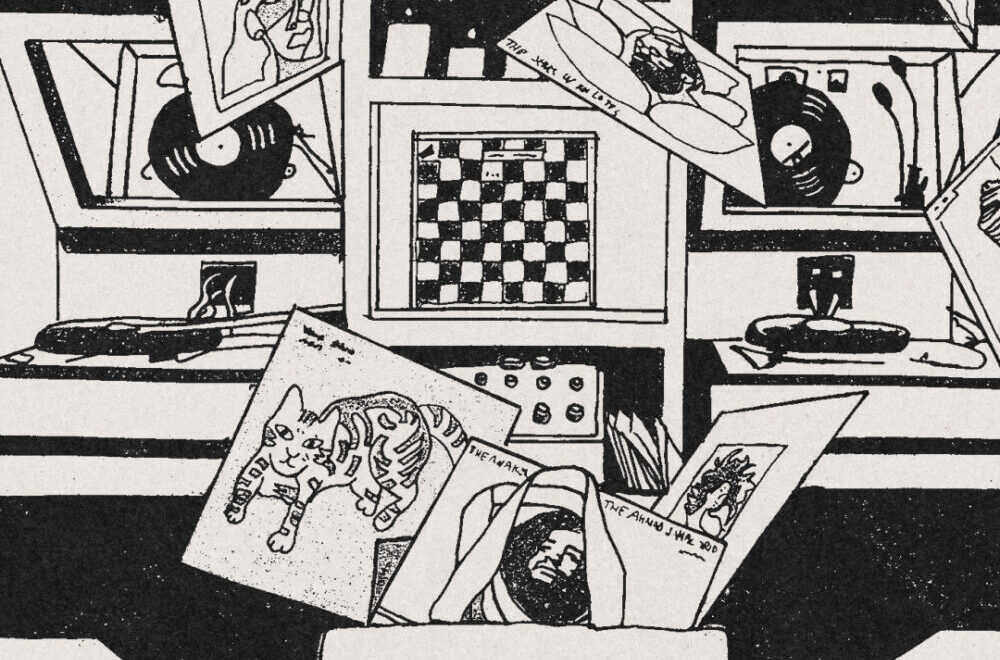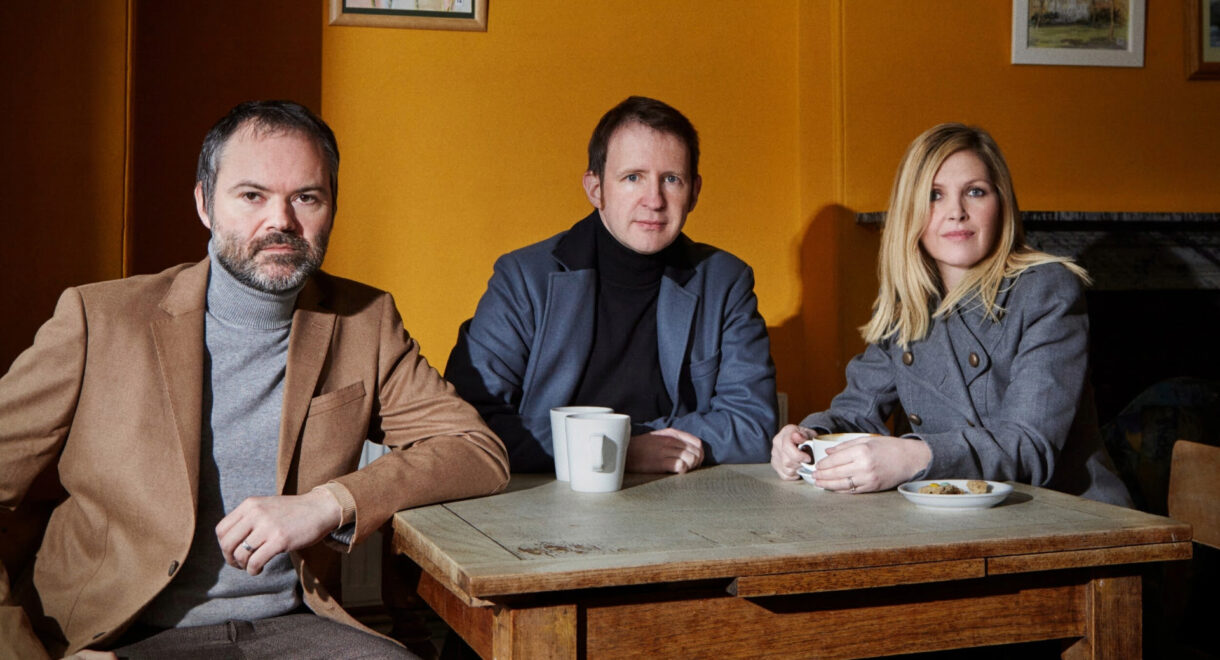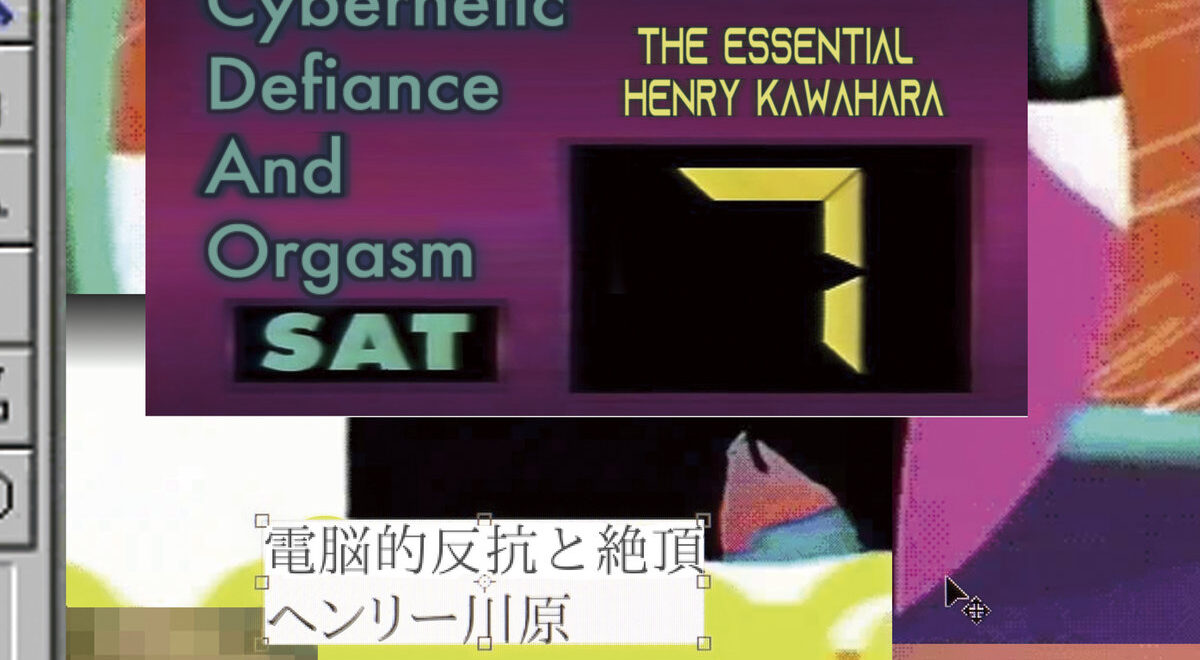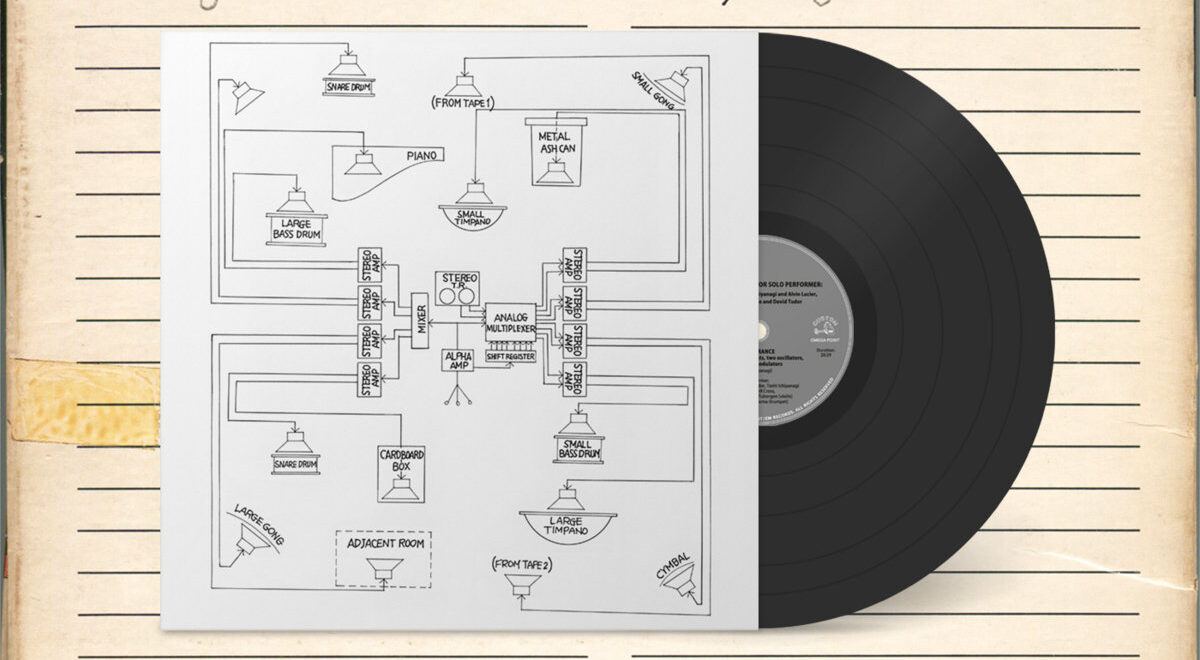Begin with the performance, stay for How to Rescue Things, Orcutt’s 2024 album that deepens the picture. Every once in a while it’s important to watch an artist […]
Automated Elegance: Spencer Doran and the Ghost of the Componium

The co-founder of Visible Cloaks debuts 8 Automated Works on EM Records as Componium Ensemble, offering one of his most elegant works yet — a digital homage to a forgotten 19th-century music machine.
Spencer Doran has long been drawn to systems — the behind-the-scenes engines that quietly shape how music unfolds. With Visible Cloaks, he and Ryan Carlile make sonic mirages: vaporous, elegant, and oddly spiritual. Their work is deeply structured but never rigid and attuned to the space between logic and intuition.
With 8 Automated Works, Doran shifts that curiosity into a more tactile realm. His new project is Componium Ensemble, featuring work composed entirely with virtual instruments — digitally modeled versions of celesta, prepared piano, bowed harpsichord, flute, tingklik, and more — sequenced through algorithmic processes rather than played live. The music feels performed, but it’s the result of automated composition and digital orchestration. The EP is out October 17th on Japan’s always-intriguing EM Records and will be available stateside as a 10-inch record and CD (which contains a Carl Stone remix) via In Sheep’s Clothing Distribution — no need to brave overseas postage to hear the machine dream.
Shops reach out to [email protected]
The name comes from the Componium, a mechanical music machine invented in 1821 by Dietrich Nikolaus Winkel. Imagine a self-playing pipe organ crossbred with a roulette wheel. It used two rotating barrels, each pinned with variations of a musical piece, swapping two-measure phrases in and out as it played. While one barrel spun, the other rested and, during that pause, might shift laterally — advancing or holding position — based on a simple aleatoric gear system. The effect was a continuous stream of subtly morphing music: coherent, but constantly surprising.
Buy Componium Ensemble’s 8 Automated Works at the ISC Store
“The history of automated instruments reaches back as far as Archimedes and his ‘organum hydraulicum,’” Doran writes in the liner notes, “but it was the Banū Mūsā brothers in 9th-century Baghdad who first perfected the concept of a programmable, automated musician: a mechanically controlled flute which performed using a cistern’s hydraulic water pressure and a system of arrangeable punchcards using a visionary proto-MIDI structure. As European clock-making and mechanical music caught up to the Islamic Golden Age a millennium later, automated instruments intersected with aleatoric composition in Dietrich Nikolaus Winkel’s ‘self composing’ Componium…”
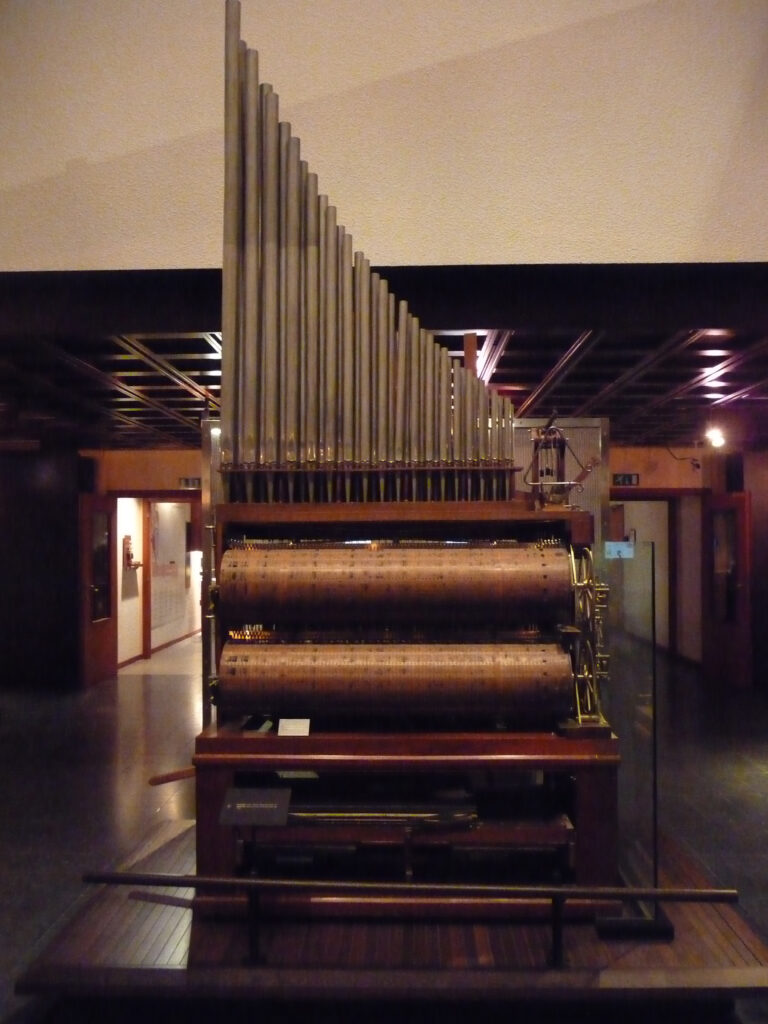
Winkel, for the record, also invented the modern metronome — but Johann Maelzel patented it, branded it, and got his initials into Beethoven’s margins. It’s a recurring pattern: the quiet mechanic overtaken by the showman. A similar tension between visibility and authorship, control and surrender, hums beneath 8 Automated Works.
The Componium’s original variation count was wildly overstated (14 quintillion, give or take). Recent analysis by Jim Bumgardner recalibrated that number to a still staggering 53 trillion-ish possible permutations. Not infinite, but you’ll be long dead before you hear, let alone recall, a repeat. It’s a clockwork precursor to generative music as we know it.
Doran doesn’t so much replicate Winkel’s machine as channel its essence. Instead pipes and barrels, he builds digital architectures. Instead of air pressure, he conjures through code the texture of breath. That code is often impossibly complex. To play “Block” or “Rosin” live, Doran would need a four-handed, 20-fingered pianist. In that sense, 8 Automated Works shares DNA with Conlon Nancarrow’s player piano compositions — impossible to perform by humans but executed with mechanical elegance.
Most important, of course, the record is beautiful, and blossoms with volume. Not just interesting or clever, but genuinely gorgeous. Joe Williams (Motion Graphics, Lifted) mixes the pieces with crystalline bliss, letting tones float and cluster unhurriedly. “Automata” suggests the sound of a mobile made of glass and driftwood turning randomly in the wind.
Dedicated to the late Noah Creshevsky, whose electroacoustic collages explored the uncanny line between human and machine, 8 Automated Works feels like a kindred experiment, even if Doran’s touch is less surgical. EM Records, in fact, will be reissuing Creshevsky’s Hyperrealist Music 2011-2015 on LP in October.
The cover art by Kai Yoshizawa — a hyper-real 3DCG rendering — feels like a schematic for an impossible instrument: pristine, surreal, a little too perfect to be handmade. It’s a fitting visual for a project that sounds like it was built in the cleanroom of a monastery.
Buy Componium Ensemble’s 8 Automated Works at the ISC Store
To inquire about wholesale pricing, shops please reach out to [email protected]





